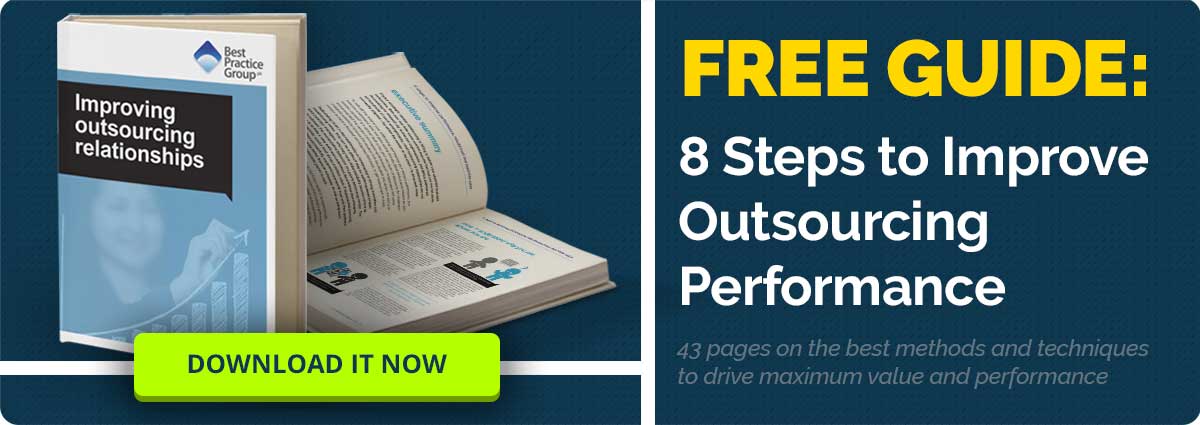 The National Audit Office’s 2016 report on commercial and contract management issues in the public sector offers up a ‘gold mine’ of useful information for organisations across the public-private spectrum. Its segmentation of all the issues they identified into seven key principles offers an excellent overview of weaknesses that all companies suffer from to some degree, which is why we have dedicated an article to each. This being the fifth in the series.
The National Audit Office’s 2016 report on commercial and contract management issues in the public sector offers up a ‘gold mine’ of useful information for organisations across the public-private spectrum. Its segmentation of all the issues they identified into seven key principles offers an excellent overview of weaknesses that all companies suffer from to some degree, which is why we have dedicated an article to each. This being the fifth in the series.
We hope that you find them as useful as we have. There are links to all the other articles we have written in this series at the bottom of this piece. This article considers the four issues related to the principle of Contract Management.
Contract Management Issues:
Issue #13 of 20: Manage your own obligations
Supplier productivity can be intrinsically linked to their client’s action or inaction. If things go wrong within a relationship, the starting point is to first look inwards to assess whether any fault lies within before placing the blame at a supplier’s door. If instructions, approvals, or portions of project work have not been supplied/completed in a timely fashion by the client, then this can have a knock-on effect resulting in delays and ultimately the probability of increased project costs. Effective management of a client’s own obligations, properly agreed and documented, can lead to better relationships and a greater likelihood of maximising the skills and talents of your supplier that brought you to them in the first place.
Warning Indicators
- Ambiguous responsibilities and unclear obligations leading to confusion.
- Poor management of multiple stakeholder dependencies through, for example, lack of a project management approach.
- Not making the most of the potential for contracts and commercial relationships to add value beyond the contract itself.
Emerging Best Practice
- Create clear contract terms
As with all of our discussions on the subjects of contracts and agreements, your obligations to the relationship should be thoroughly considered, clearly presented, agreed, and documented so all can see where their responsibilities lie.
- Set out obligations
Having a complete and accurate document means very little unless it becomes part of your working practice. Use this document to help develop effective KPIs and allocate responsibilities for achieving them, then make sure they are agreed and understood.
- Project manage
Take a strategic approach to monitoring and managing the contract to ensure that these milestones are met, and, where they are not met, that the people responsible recognise the impact of their failure to meet expected targets.
Issue #14 of 20: Know what suppliers are doing
While the National Audit Office (NAO) report acknowledged that the government had done much to increase its awareness of what their suppliers were doing, it felt that more could certainly be done in this area. Clients need to take a hands-on approach in their contract management; they need to find an appropriate balance between too little reporting where issues go unnoticed and too much, where the burden of compliance becomes unwieldy. However, for effective contract management to exist there must first be an adequate overview of a supplier’s progress against their contractually agreed roadmap.
Warning Indicators
- A lack of transparency about supplier data, despite the government’s transparency agenda.
- Over-reliance on supplier self-reporting without gaining independent assurance of data.
- A tendency to substantively test supplier information rather than understanding the controls over the information.
- Challenges in understanding the supply chain’s performance and resultant risks.
- Insufficient consequences for poor performance or errors being found through assurance.
Emerging Best Practice
- Proportional approach
While monitoring and contract management needs to be seen to be fair and unbiased between suppliers, each relationship must also be treated as unique with its own tailored approach to watch out for risks and keep productivity on track.
- Self-reporting vs own information
An appropriate balance must be found that satisfies the need to show confidence in a supplier and keep costs down, while also keeping a close eye on progress.
- Substantive vs controls testing
The quality of the information you gather from, or about, your supplier is central to its use in risk and contract management. You can ask for an independent opinion – controls assurance, or you can take the more challenging route of controls testing against benchmarks, which will require more specialised expertise.
- Rolling assurance vs standing teams
The involvement of an individual or team responsible for continually monitoring the quality of information coming from a supplier will result in less need for specialised testing, which will only need to be done if the assurance process identifies a cause for concern.
Issue #15 of 20: Show what you care about
Just as in face-to-face communication where the words you speak must match your body language to convey a clear message, in client-supplier communication what you present as most important to you is just as vital as what you publish in your written agreement. Suppliers respond to priorities that you share with them, sometimes with greater impact than their contractual obligations. Therefore, make sure you communicate your priorities clearly and fully so suppliers understand the weighting you give to different facets of a project, and this will ensure a greater chance of your supplier matching your expectations of them.
Warning Indicators
- Not being clear to suppliers about what government wants from a contract.
- Not paying attention to what matters during the contract.
- Not being close enough to suppliers.
Emerging Best Practice
- Plan
At the outset of a project the sheer volume of information can lead to confusion if clear priorities are not established. Highlight these and possibly even order them, and your supplier is more likely to align their efforts to your needs. Back this up with appropriate incentives and encourage innovation in these areas, then you have the start of a plan.
- Work together
The plan is of course just the foundation of an effective working relationship. This plan needs to be regularly referenced in periodic supplier meetings to encourage a collaborative approach to achieving the outcomes that matter to you most.
Issue #16 of 20: Understand suppliers’ motivation
A supplier will be motivated by a combination of factors – profit may well often be in the top three, but there are others that could be utilised to help you find ways of driving the right behaviours on a project. Chief among these additional motivational factors is kudos or reputation. The power of the promotional aspect of a high-profile job well done is undeniable, but equally the converse is true, the impact of gaining a reputation for poor project performance can be used to adjust a supplier’s productivity levels. There are of course many other factors that can motivate, so are you doing enough to find out what’s important to your suppliers?
Warning Indicators
- Not taking advantage of suppliers’ reputation management which we have seen built into internal control frameworks.
- Ignoring the ways suppliers can use contracts and contract performance to align with their own supplier values, objectives and standards for staff engagement.
Emerging Best Practice
Contract managers with their fingers on the pulse will always look to discover what motivates their suppliers, what they are looking to get out of the relationship, and what could be used to guide performance and innovation, to encourage added value and to align their efforts to your goals. Know your suppliers and you’ll know how best to create a collaborative working relationship with them.
Contract Management Issues – Conclusion
Be fully aware of your responsibilities to the project and do your absolute best to live up to them in order to do your part to ensure success, share your priority list with your supplier, appreciate what keeps them driven on a project, and monitor, monitor, and manage to ensure that your project stays on track. Contract management is not something you outsource: it is a duty you share with your supplier, but also one that ultimately you must maintain uppermost responsible over.
Previous articles of ours have focused on several of the 20 fundamental issues highlighted within the NAO’s ‘Commercial and contract management: insights and emerging best practice’ report. These issues are grouped under seven key judgements for commercial relationships. So, for a full and detailed picture of these issues click on the following links to be taken to the relevant article (They are being completed in order, so if a link does not exist watch out for the additional article over the next few weeks) – Commercial Strategy, Commercial Capability, Market Management and Sourcing, Contract Approach, Contract Management, Contract Lifecycle, Transition and Termination.


